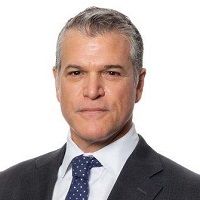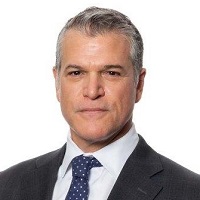As Florida Condo Prices Fall, What’s a Condo Seller to Do?
Mandates that associations have adequate reserve funds for maintenance and repairs mean older buildings could be retired to make way for new development.


Profit and prosper with the best of Kiplinger's advice on investing, taxes, retirement, personal finance and much more. Delivered daily. Enter your email in the box and click Sign Me Up.
You are now subscribed
Your newsletter sign-up was successful
Want to add more newsletters?

Delivered daily
Kiplinger Today
Profit and prosper with the best of Kiplinger's advice on investing, taxes, retirement, personal finance and much more delivered daily. Smart money moves start here.

Sent five days a week
Kiplinger A Step Ahead
Get practical help to make better financial decisions in your everyday life, from spending to savings on top deals.

Delivered daily
Kiplinger Closing Bell
Get today's biggest financial and investing headlines delivered to your inbox every day the U.S. stock market is open.

Sent twice a week
Kiplinger Adviser Intel
Financial pros across the country share best practices and fresh tactics to preserve and grow your wealth.

Delivered weekly
Kiplinger Tax Tips
Trim your federal and state tax bills with practical tax-planning and tax-cutting strategies.

Sent twice a week
Kiplinger Retirement Tips
Your twice-a-week guide to planning and enjoying a financially secure and richly rewarding retirement

Sent bimonthly.
Kiplinger Adviser Angle
Insights for advisers, wealth managers and other financial professionals.

Sent twice a week
Kiplinger Investing Weekly
Your twice-a-week roundup of promising stocks, funds, companies and industries you should consider, ones you should avoid, and why.

Sent weekly for six weeks
Kiplinger Invest for Retirement
Your step-by-step six-part series on how to invest for retirement, from devising a successful strategy to exactly which investments to choose.
Condo prices in Florida have been steadily falling, fueled by an increasing rate of motivated sellers.
Certainly, high interest rates are a part of this trend, but a closer look suggests that changes to the Florida Condominium Act — the state’s laws governing condominium associations — may be a major factor behind the market trend and also suggests that a development boom could be coming.
Fundamentally, real estate demand in Florida has remained strong. The Sunshine State saw a significant influx of migration during the pandemic, according to the Census Bureau, and those trends have largely remained steady.
From just $107.88 $24.99 for Kiplinger Personal Finance
Become a smarter, better informed investor. Subscribe from just $107.88 $24.99, plus get up to 4 Special Issues

Sign up for Kiplinger’s Free Newsletters
Profit and prosper with the best of expert advice on investing, taxes, retirement, personal finance and more - straight to your e-mail.
Profit and prosper with the best of expert advice - straight to your e-mail.
What’s changed, though, is a major amendment to the Florida Condominium Act covering condo associations, which was passed following the collapse of the Champlain Towers condominium complex in 2021. That tragedy was likely due to significant deferred maintenance issues and a lack of adequate reserves to address the structural maintenance issues.
Under the new amendments, condo associations have new standards that mandate that associations maintain adequate reserve funds for maintenance and repairs.
By the end of this year, condo associations in Florida must obtain a Structural Integrity Reserve Study that outlines what reserves must be collected to finance the repairs and maintenance of critical components of the building over the next 10 years based upon the current condition of the building. If any components of the building, such as the roof or balconies, are past their estimated useful life, it is likely those components will be required to be repaired or replaced right away.
What does this mean?
All this means that condo owners in Florida — especially those in older buildings in need of more attention — are suddenly facing (or are soon to face) dramatic hikes to their monthly condo association fees and, potentially, significant special assessments.
The scramble to bring buildings into compliance means that condo association fees in many cases may increase to an amount that is more than owners’ mortgage payments — potentially leading middle- and fixed-income Floridians into financial chaos.
Owners who anticipate that they will not be able to afford the mandated increases are understandably moving aggressively to sell their units, bringing a flood of motivated sellers into the market.
But buyers don’t want a unit in an aging building requiring expensive mandated upgrades with hefty COA fees and special assessments. For a comparable price, buyers can likely purchase a unit in a much newer building, avoid surprise increases in COA fees and special assessments and get vastly better value for their money.
It’s hurting the middle and lower end of the condo market. There is a serious concern that if the values of these condos drop too fast and a high percentage of unit owners cannot pay their COA fees, mortgage lenders will no longer be willing to lend against the units in those communities. That would essentially make those units unsellable since no buyer could get a regular mortgage loan to finance the purchase. If this happens, the condo associations may fail and be forced to declare bankruptcy.
Owners of luxury condos can handle increased costs
In contrast, the luxury condo market in Florida is still going strong. For the most part, luxury buildings and luxury owners aren’t facing the same sort of squeeze that middle-income buildings are seeing since owners in these projects are more able to afford any increased COA fees and special assessments. Also, the majority of luxury condo projects are newer, but even the older buildings have generally been better maintained than middle- and lower-end condos.
For developers of luxury properties, the situation faced by older condo buildings may create more development opportunities.
Even before the recent changes in the condo act, many of the older condo buildings in South Florida were facing extremely high repair and replacement costs as buildings deteriorated and the cost of replacement components increased. In many cases, the unit owners determined that it no longer made sense to keep their units since the cost of maintaining the condo building would continue to increase, but the value of their units would continue to gradually decrease.
Because development sites are in short supply, in many cases, the land value per unit exceeds the market value per unit for older condo buildings. For many condo communities, the real asset is the value of their share of the land under their building.
Increasingly, condo owners are uniting to bring their units to market and sell in bulk to a developer, who can in turn terminate the condominium, demolish the existing structure and develop a new building. In 2023, South Florida saw the highest number of bulk condo buyouts since 2019.
What should condo owners do?
Condo owners need to move quickly if they want to maximize the value they receive for their units. If they wait too long, they’ll lose a lot of the leverage they need in negotiations. In order to get the best offer for their building, owners should be unified as a COA to bring their properties to market.
Typically, a strong majority of owners is necessary to get a deal done. The exact number varies based on the language in the condo documents and whether the current version of the condo act applies. In some cases, percentages as low as 75% are sufficient. However, under the current version of the condo act, 95% of the voting interest is required to terminate a condominium. An experienced condo attorney should assist the condo association to determine what percentage would be required for a particular condo association.
COA leadership should be actively considering what’s in the best interest of their owners and educating them on how these deals can be structured. If you’re a condo owner in an older building in Florida and your COA hasn’t brought up the idea of a sale, ask your directors if they have considered the idea.
These bulk condo buyout deals can be difficult and risky transactions for developers, as they tend to result in litigation from minority unit owners who do not vote in favor of a bulk sale. A recent decision by a Florida appeals court may further complicate the ability of older condominiums to terminate.
Florida has also instituted a number of incentive programs to encourage developers to continue to invest in the state, including programs designed to boost affordable housing. The Live Local Act, for instance, has spurred a slate of development that’s targeted toward homes for middle- and lower-income families that could relieve some of the pressure generated by the condo law changes.
For now, those laws are turning loose powerful market forces that will cause real pain for certain condo owners but create real opportunity for condo developers. It will make for a fascinating period in the state’s fabled real estate history.
Related Content
- Retirees, A Healthy Condo Has a Flush Reserve Fund
- Is Now a Good Time to Buy a House?
- Six Reasons to Use a Real Estate Agent When You Sell
- Four Reasons to Buy When You Downsize for Retirement
- Why Luxury Home Sales Are Surging Right Now
Profit and prosper with the best of Kiplinger's advice on investing, taxes, retirement, personal finance and much more. Delivered daily. Enter your email in the box and click Sign Me Up.

Drawing on his prior experience as a banker and general counsel for a private equity firm, Joe Hernandez counsels a variety of clients in negotiating and structuring complex commercial real estate transactions. He represents real estate developers, financial institutions, private equity firms, family offices and public entities in all phases of such transactions, with deals across the United States, Latin America and the Caribbean.
-
 Quiz: Do You Know How to Avoid the "Medigap Trap?"
Quiz: Do You Know How to Avoid the "Medigap Trap?"Quiz Test your basic knowledge of the "Medigap Trap" in our quick quiz.
-
 5 Top Tax-Efficient Mutual Funds for Smarter Investing
5 Top Tax-Efficient Mutual Funds for Smarter InvestingMutual funds are many things, but "tax-friendly" usually isn't one of them. These are the exceptions.
-
 AI Sparks Existential Crisis for Software Stocks
AI Sparks Existential Crisis for Software StocksThe Kiplinger Letter Fears that SaaS subscription software could be rendered obsolete by artificial intelligence make investors jittery.
-
 Social Security Break-Even Math Is Helpful, But Don't Let It Dictate When You'll File
Social Security Break-Even Math Is Helpful, But Don't Let It Dictate When You'll FileYour Social Security break-even age tells you how long you'd need to live for delaying to pay off, but shouldn't be the sole basis for deciding when to claim.
-
 I'm an Opportunity Zone Pro: This Is How to Deliver Roth-Like Tax-Free Growth (Without Contribution Limits)
I'm an Opportunity Zone Pro: This Is How to Deliver Roth-Like Tax-Free Growth (Without Contribution Limits)Investors who combine Roth IRAs, the gold standard of tax-free savings, with qualified opportunity funds could enjoy decades of tax-free growth.
-
 One of the Most Powerful Wealth-Building Moves a Woman Can Make: A Midcareer Pivot
One of the Most Powerful Wealth-Building Moves a Woman Can Make: A Midcareer PivotIf it feels like you can't sustain what you're doing for the next 20 years, it's time for an honest look at what's draining you and what energizes you.
-
 I'm a Wealth Adviser Obsessed With Mahjong: Here Are 8 Ways It Can Teach Us How to Manage Our Money
I'm a Wealth Adviser Obsessed With Mahjong: Here Are 8 Ways It Can Teach Us How to Manage Our MoneyThis increasingly popular Chinese game can teach us not only how to help manage our money but also how important it is to connect with other people.
-
 Looking for a Financial Book That Won't Put Your Young Adult to Sleep? This One Makes 'Cents'
Looking for a Financial Book That Won't Put Your Young Adult to Sleep? This One Makes 'Cents'"Wealth Your Way" by Cosmo DeStefano offers a highly accessible guide for young adults and their parents on building wealth through simple, consistent habits.
-
 Global Uncertainty Has Investors Running Scared: This Is How Advisers Can Reassure Them
Global Uncertainty Has Investors Running Scared: This Is How Advisers Can Reassure ThemHow can advisers reassure clients nervous about their plans in an increasingly complex and rapidly changing world? This conversational framework provides the key.
-
 I'm a Real Estate Investing Pro: This Is How to Use 1031 Exchanges to Scale Up Your Real Estate Empire
I'm a Real Estate Investing Pro: This Is How to Use 1031 Exchanges to Scale Up Your Real Estate EmpireSmall rental properties can be excellent investments, but you can use 1031 exchanges to transition to commercial real estate for bigger wealth-building.
-
 Should You Jump on the Roth Conversion Bandwagon? A Financial Adviser Weighs In
Should You Jump on the Roth Conversion Bandwagon? A Financial Adviser Weighs InRoth conversions are all the rage, but what works well for one household can cause financial strain for another. This is what you should consider before moving ahead.